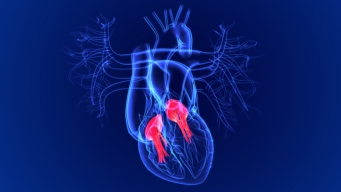Women and Stroke: Signs, Symptoms and Outcomes
Medically reviewed by
Dr. Ravish Kothari
McLeod Health Neurologist
Approximately 800,000 Americans have a stroke each year. Surprisingly, stroke is the third leading cause of death in women, and more women die of stroke than men. There are several reasons why women are more likely than men to have a stroke. Aging is an important risk factor, and women live longer than men. Women are also more likely to have high blood pressure, which is directly linked to stroke. Pregnancy and birth control are additional factors that can increase a woman’s risk of stroke.
“A stroke occurs when the blood flow to the brain is blocked or when a blood vessel in the brain bursts,” explains McLeod Hospital Neurologist Dr. Ravish Kothari. “The blood carries oxygen to the cells throughout the body, and when the brain is deprived of blood, those cells die. Depending on which part of the brain the stroke affects, a person may have problems with their speech, movement, balance, vision or memory. If left untreated, a stroke can be fatal.”
Common Stroke Symptoms and Treatments
Women frequently report symptoms not often associated with strokes in men. Because these symptoms are unique to women, it may be difficult to immediately connect them to stroke. This can delay treatment, which may negatively affect recovery.
They include:
- Nausea or vomiting
- Seizures
- Hiccups
- Trouble breathing
- Pain
- Fainting or loss of consciousness
- General weakness
When it comes to treating a stroke, every minute counts. The longer you wait to call your local emergency services, the more likely it is that the stroke will result in brain damage or disability. Remembering the word “FAST” is a simple way to identify stroke symptoms:
F – Face droop: Ask the person to smile. Does one side droop?
A – Arm weakness: Ask the person to raise both arms. Does one arm drift downward?
S – Speech difficulty: Ask the person to repeat a simple sentence. Are the words slurred?
T – Time to call 9-1-1: If the person shows any of these signs, call 9-1-1 immediately.
Good News: 4 in 5 Strokes Are Preventable
There are several steps you can take to help prevent a stroke. By eating a balanced diet, maintaining a healthy weightand getting regular exercise, you can reduce your risk for a stroke event. If you smoke, your doctor can suggest ways to help you quit. Also, keeping your blood pressure and cholesterol in check is key to your good health.
Test your stroke knowledge by taking our McLeod stroke quiz.
Sources: Center for Disease Control, American Heart Association, Healthline, U.S. Department of Health & Human Services, National Library of Medicine
-
McLEOD REGIONAL MEDICAL CENTER FLORENCE
843-777-2000 -
McLEOD DARLINGTON
843-777-1100 -
McLEOD DILLON
843-774-4111 -
McLEOD LORIS
843-716-7000 -
McLEOD SEACOAST
843-390-8100 -
McLEOD CHERAW
843-537-7881 -
McLEOD CLARENDON
803-433-3000



-
McLEOD REGIONAL MEDICAL CENTER FLORENCE
843-777-2000 -
McLEOD DARLINGTON
843-777-1100 -
McLEOD DILLON
843-774-4111 -
McLEOD LORIS
843-716-7000 -
McLEOD SEACOAST
843-390-8100 -
McLEOD CHERAW
843-537-7881 -
McLEOD CLARENDON
803-433-3000
 Find a Doctor
Find a Doctor  Locations
Locations  Services
Services 